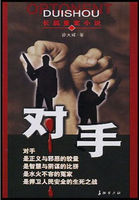The single division of the Nineteenth Corps had for its immediate chief Brigadier-General William Dwight, the corps being commanded by Brigadier-General Wm. H. Emory. The troops from West Virginia were under Brigadier-General George Crook, with Colonels Joseph Thoburn and Isaac H. Duval as division commanders, and though in all not more than one fair-sized division, they had been designated, on account of the department they belonged to, the Army of West Virginia. General Torbert's division, then arriving from the Cavalry Corps of the Army of the Potomac, represented the mounted arm of the service, and in the expectation that Averell would soon join me with his troopers, I assigned General Torbert as chief of cavalry, and General Wesley Merritt succeeded to the command of Torbert's division.
General Wright, the commander of the Sixth Corps, was an officer of high standing in the Corps of Engineers, and had seen much active service during the preceding three years. He commanded the Department of the Ohio throughout the very trying period of the summer and fall of 1862, and while in that position he, with other prominent officers, recommended my appointment as a brigadier-general. In 1863 he rendered valuable service at the battle of Gettysburg, following which he was assigned to the Sixth Corps, and commanded it at the capture of the Confederate works at Rappahannock Station and in the operations at Mine Run. He ranked me as a major-general of volunteers by nearly a year in date of commission, but my assignment by the President to the command of the army in the valley met with Wright's approbation, and, so far as I have ever known, he never questioned the propriety of the President's action. The Sixth Corps division commanders, Getty, Russell, and Ricketts, were all educated soldiers, whose records, beginning with the Mexican War, had already been illustrated in the war of the rebellion by distinguished service in the Army of the Potomac.
General Emory was a veteran, having graduated at the Military Academy in 1831, the year I was born. In early life he had seen much service in the Artillery, the Topographical Engineers, and the Cavalry, and in the war of the rebellion had exhibited the most soldierly characteristics at Port Hudson and on the Red River campaign. At this time he had but one division of the Nineteenth Corps present, which division was well commanded by General Dwight, a volunteer officer who had risen to the grade of brigadier-general through constant hard work. Crook was a classmate of mine--at least, we entered the Military Academy the same year, though he graduated a year ahead of me. We had known each other as boys before we entered the army, and later as men, and I placed implicit faith in his experience and qualifications as a general.
The transfer of Torbert to the position of chief of cavalry left Merritt, as I have already said, in command of the First Cavalry Division. He had been tried in the place before, and from the day he was selected as one of a number of young men to be appointed general officers, with the object of giving life to the Cavalry Corps, he filled the measure of expectation. Custer was one of these young men too, and though as yet commanding a brigade under Merritt, his gallant fight at Trevillian Station, as well as a dozen others during the summer, indicated that he would be equal to the work that was to fall to him when in a few weeks he should succeed Wilson. But to go on down the scale of rank, describing the officers who commanded in the Army of the Shenandoah, would carry me beyond all limit, so I refrain from the digression with regret that I cannot pay to each his well-earned tribute.
The force that I could take with me into the field at this time numbered about 26,000 men. Within the limits of the geographical division there was a much greater number of troops than this.
Baltimore, Washington, Harper's Ferry, Hagerstown, Frederick, Cumberland, and a score of other points; besides the strong detachments that it took to keep the Baltimore and Ohio railroad open through the mountains of West Virginia, and escorts for my trains, absorbed so many men that the column which could be made available for field operations was small when compared with the showing on paper. Indeed, it was much less than it ought to have been, but for me, in the face of the opposition made by different interests involved, to detach troops from any of the points to which they had been distributed before I took charge was next to impossible.
In a few days after my arrival preparations were completed, and I was ready to make the first move for the possession of the Shenandoah Valley. For the next five weeks the operations on my part consisted almost wholly of offensive and defensive manoeuvring for certain advantages, the enemy confining himself meanwhile to measures intended to counteract my designs. Upon the advent of Torbert, Early immediately grew suspicious, and fell back twelve miles south of Martinsburg, to Bunker Hill and vicinity, where his right flank would be less exposed, but from which position he could continue to maintain the break in the Baltimore and Ohio railroad, and push reconnoitring parties through Smithfield to Charlestown. These reconnoitring parties exhibited considerable boldness at times, but since they had no purpose in view save to discover whether or not we were moving, I did not contest any ground with them except about our outposts. Indeed, I desired that Early might remain at some point well to the north till I was fully prepared to throw my army on his right and rear and force a battle, and hence I abstained from disturbing him by premature activity, for I thought that if I could beat him at Winchester, or north of it, there would be far greater chances of weighty results. I therefore determined to bring my troops, if it were at all possible to do so, into such a position near that town as to oblige Early to fight. The sequel proved, however, that he was accurately informed of all my movements. To anticipate them, therefore, he began his retreat up the valley the day that I moved out from Halltown, and (consequently was able to place himself south of Winchester before I could get there.















